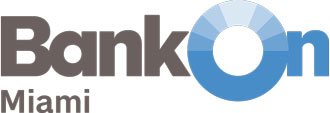Bank On Miami is a collaborative effort between Miami-Dade County, United Way Miami, financial institutions and other government entities and non-profits. Created as an initiative of Miami-Dade County Commission Chairman Jean Monestime’s Council for Prosperity Initiatives, Bank On Miami was formed to help improve the financial stability of low- to moderate-income families across our community.
Miami-Dade County has one of the highest income inequality gaps in America and is home to tens of thousands of unbanked and underbanked households who frequently use expensive, unnecessary and sometimes predatory financial services such as check cashers.
Through financial education — and a connection to a wealth of community resources and coordination with banks, credit unions and other financial institutions — Bank On Miami supports increased access to needed financial products and services to enhance the economic mobility and wellness of Miami-Dade County residents, helping thousands of individuals save money and build their financial futures.
Facts

Bank On Miami has partnered with many different institutions to offer safe and affordable financial products and services, as well as high-quality financial education.
An estimated 9 million American households are unbanked, meaning they do not have a checking or savings account. An additional 21 million households are underbanked, meaning they may have an account but continue to rely on alternative financial services, like check-cashing services, payday loans, rent-to-own agreements or pawn shops.
Of large cities with more than 100,000 households, Miami has the highest rate of unbanked and underbanked households in the country. Among mid-size cities with over 50,000 households, Hialeah has the 3rd highest rates nationwide. In each city, approximately 1 in 5 households are unbanked, while an additional 1 in 5 households are underbanked.
*Unbanked:
have no bank account or credit union account
*Underbanked:
have a bank or credit account, but use alternative financial services, such as check cashing, payday loans, rent-to-own, and/or pawn shops.
According to a Brookings Institute report, “a full-time worker without a checking account could potentially save as much as $40,000 during his/her career by relying on a lower-cost checking account instead of high-fee check-cashing services. Depending on types of checking accounts, residence, money management skills, and account stability, this same unbanked worker, assisted in transferring his savings into a savings bond, could generate as much as $360,000 in wealth over his/her 40-year career. That would allow one of those workers to finance about 25 years of retirement at their current standard of living.”
